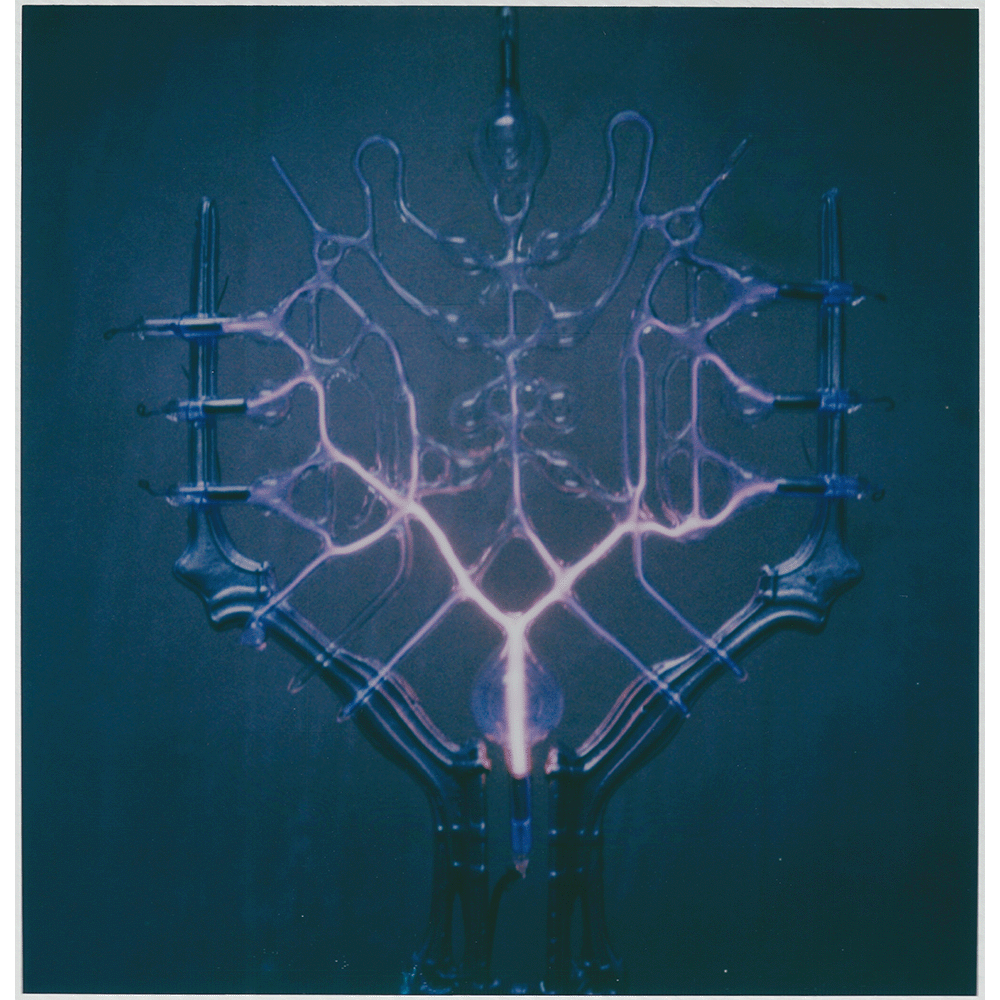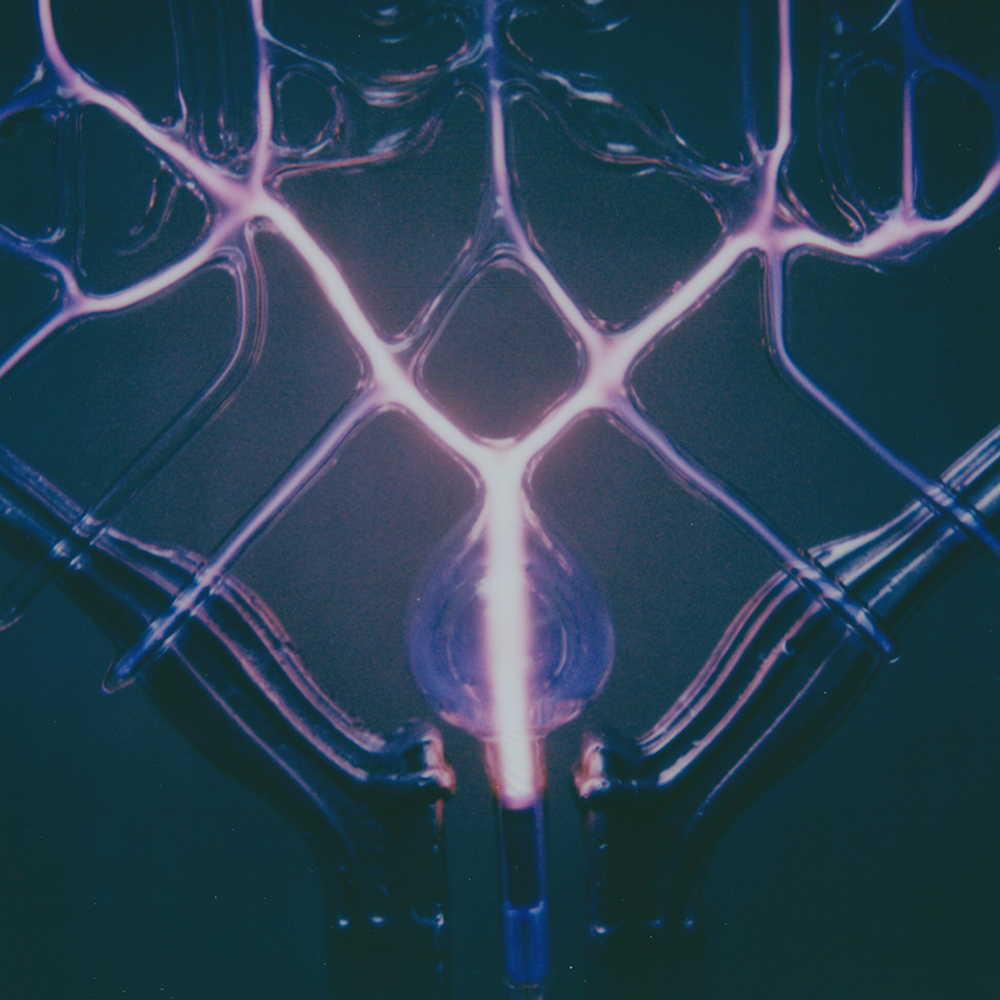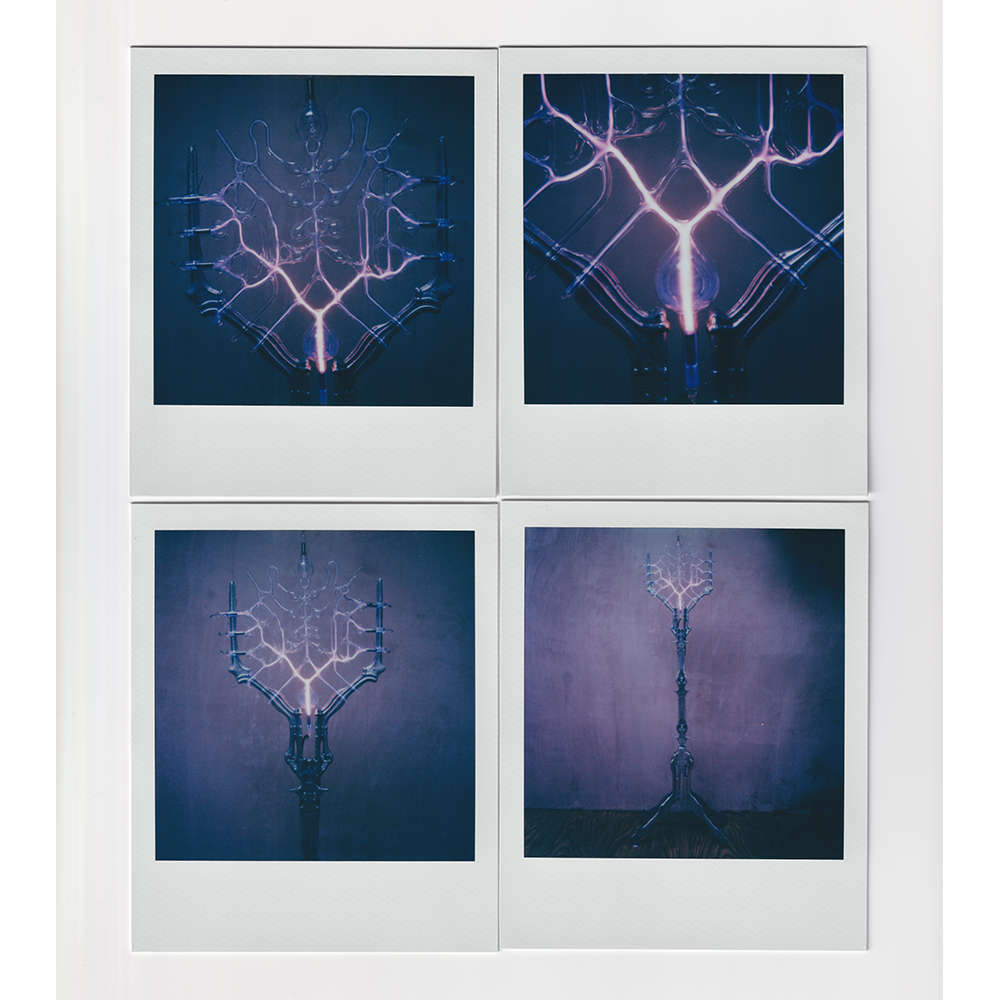
"Ibbur" draws from Kabbalistic tradition, where ibbur ( רוביע—, meaning "impregnation") describes a form of benevolent possession in which an ancestor's soul temporarily inhabits a living person to offer guidance and wisdom. This voluntary spiritual merging suggests that identity emerges not only from personal experience but through the spirits we invite to inhabit us.
This ancient practice illuminates contemporary identity formation, where we increasingly seek transformation through external intelligences—both spiritual and artificial. As we integrate these forces into our being, "Ibbu" questions whether we remain active agents in our own becoming or have transformed into vessels for futures that progressively shape and direct our consciousness."
"Emilija Povilanskaite is a London-based Lithuanian visual artist and film director. Her work - rooted in storytelling - is multifaceted, connecting technology, science, research and olfactory design, exploring how digital worlds reshape human perception through sensory experiences. Her work channels ancient folklore and mythmaking into contemporary technological spaces.
By architecting fictional worlds that engage multiple senses, she develops innovative interfaces between technology, imagination, and embodied human experience.
London-based visual artist Yuma Burgess makes otherworldly objects that merge primaeval symbolism with modern-day technology. Laser-cut slabs made of spray paint, sand, and resin reference the fluid computers of the early 1900s, but resemble ancient Egyptian tablets circa 3150 BC, while cutesy flower boy sculptures are a nod to the stylisation of ancient Mayan sculptures.
A close collaborator of photographer Aidan Zamiri, Burgess is behind the velvet cornucopia in Caroline Polachek’s music video for “Billions”, as well as FKA twigs’ for “Pamplemousse”. He’s also behind the highly coveted RELIC earrings in Paolina Russo’s latest collection. Inspired by ancient civilisations, cave paintings and rock art, Burgess uses mythology as a way of understanding our lived experience."


